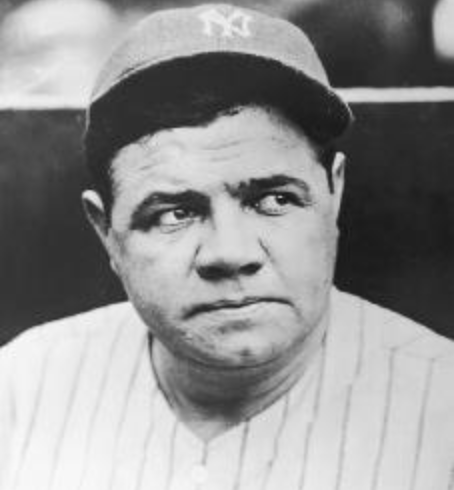Sports Toxic Masculinity - One Word: Radio (3)
- Oct 22, 2019
- 3 min read
The Roaring 20s was quite the era; music, dancing and baseball. The radio had a huge impact on the public because, besides the newspaper, it was the only way to get the news, weather and updates on baseball games. It was considered to be one of the most powerful forms of mass communication.
This was also a time that women started to have jobs and help out more than just around the house. This extra money was used to treat the family for some new entertainment. Thousands of radios were purchased by middle class Americans, and it became a way for people to see how athletes were becoming the definition of masculinity.
But, there was a shift in the definition of what being "masculine" meant. The media created a social norm of masculinity as being honorable, trustworthy, family oriented and self reliant, like an athlete. That sounds wonderful, doesn't sound very toxic to me. To be a professional athlete, you have to have determination and be self reliant to be at your peak potential.

Photo Credits: Mortal Journey
Radio cultivated athletes into national icons. This was because so many people became interested in listening to the play-by-plays of the sports games, everyone got attached to the key players that they heard about. It became crucial to the public to listen to games, it became apart of people's lifestyle.
But, one thing that was not wanted in the sports world was femininity and homosexuality.
Though the radio did not advertise this directly, book publications had a way of getting the word out. Hemingway had a huge impact on the violent characteristics of men and how they needed this violence to hold onto their manhood. The thought of being like a women was cultivated as not masculine in these readings.
Homosexuality became the antithesis of masculinity and it threatened people's manhood. It became physically apparent to society on who was a feminine man and who was more masculine. But, when a man played sports, you knew he was not homosexual because sports were portrayed in the media as manly and what strong, tough men participated in. It was never recognized over the radio that a baseball player was a homosexual, because the media did not want people to people that athletes could be feminine.

Photo Credits: http://heritage20s.weebly.com/sports.html
Babe Ruth was one of the best baseball players who has ever lived. When he was playing, he was turned into the all American hero. Children idolized him and adult men wanted to be him. In the media, he was cultivated to be one on the greatest men to ever live. He was a straight, white and hegemonic masculine man. Nationalism and the true definition of patriotism was pushed into every 1920s household and a main reason for that was because of Babe Ruth and how the media portrayed him. Even if you have never seen him swing a bat, you knew he was an American hero just by hearing about him in the media. This cultivated an underlying effect on men that they needed to be like him to have this much attention.
Media created this description of what a male athlete was and people believed it. This is how everything snowballed from simply broadcasting a baseball game, to people defining a homosexual man as not masculine because they are not physically masculine looking and do not play sports.
http://scholarworks.lib.csusb.edu/cgi/viewcontent.cgi?article=3029&context=etd-project




Comments